Scientist of the Day - Jean-Antoine Nollet
Jean-Antoine Nollet, often called the abbé Nollet, was a French experimental physicist, born on Nov. 19, 1700. Nollet gave an extremely popular lecture course in Paris for many years that was almost entirely devoted to experiments (see first image); he used over 350 pieces of apparatus, most of which he made himself, for his demonstrations. When electrical demonstrations became popular in the 1740s (second image), Nollet was right in the forefront, and he even constructed a grand theory of electricity around 1747 that involved several electrical fluids and various effluvia. Unfortunately, at about the same time, a young printer in Philadelphia, Benjamin Franklin, proposed a quite different theory, involving only one electrical fluid, which accounted much better for such things as the new Leyden jar, so Nollet is remembered as a great electrical experimenter, not as a theorist.
Nollet's textbooks for his experimental lectures remained quite popular for a long time. We have 16 Nollet titles in 18th-century editions in the Library, and our collection is by no means complete. Many years ago, in 1991, we did an exhibition on 18th-century electricity, called To Make a Vain Man Humble, and we had the opportunity to display two Nollet works. His images were great crowd-pleasers, especially the one that shows a young man hanging from the ceiling by cords, in the process of being electrified (third image).
Nollet has a street named after him in Paris. That by itself is not really noteworthy—nearly everyone French has a street named after them in Paris—but Nollet’s has an especially attractive mosaic street marker (sixth image).
Dr. William B. Ashworth, Jr., Consultant for the History of Science, Linda Hall Library and Associate Professor, Department of History, University of Missouri-Kansas City. Comments or corrections are welcome; please direct to ashworthw@umkc.edu.

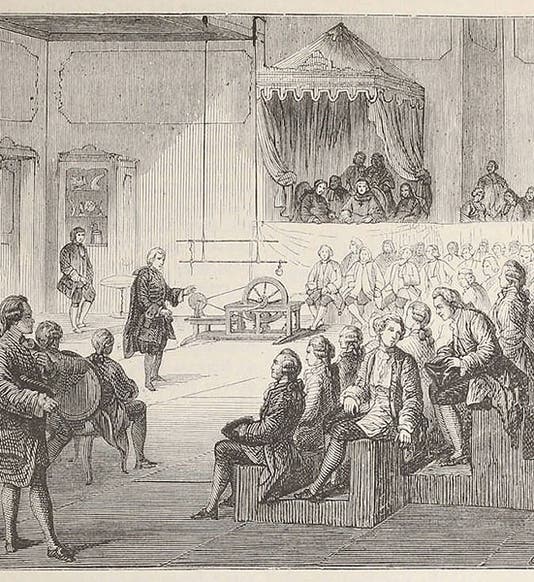
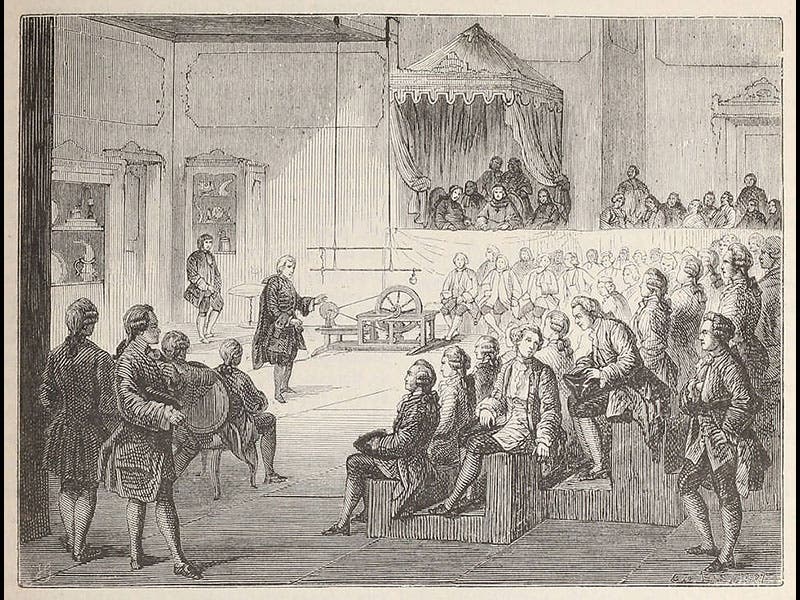
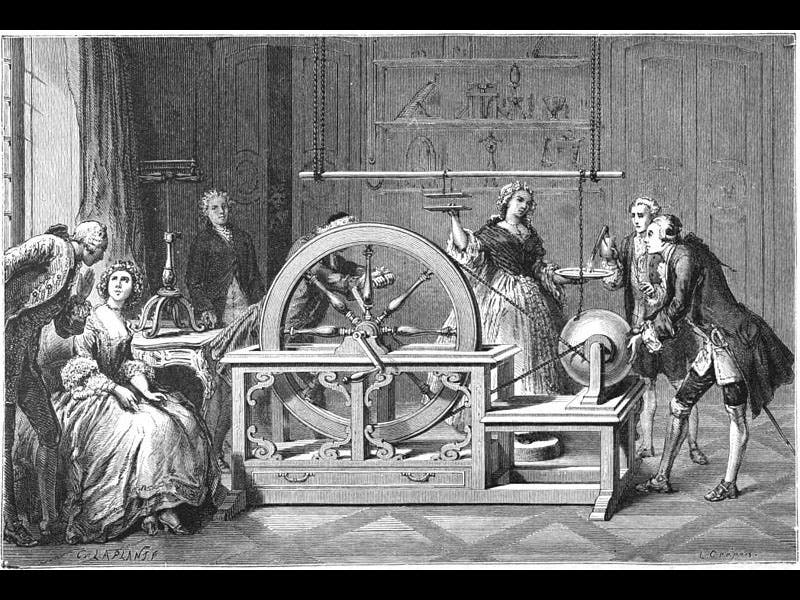
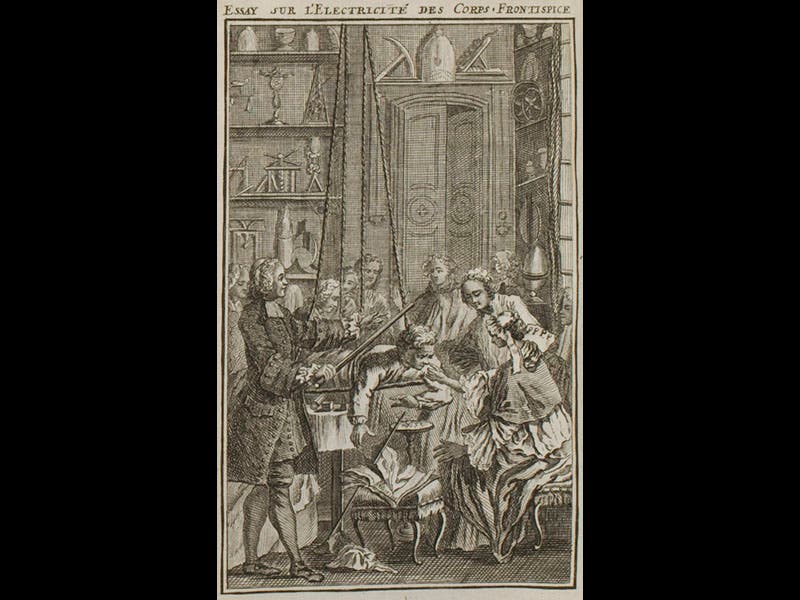
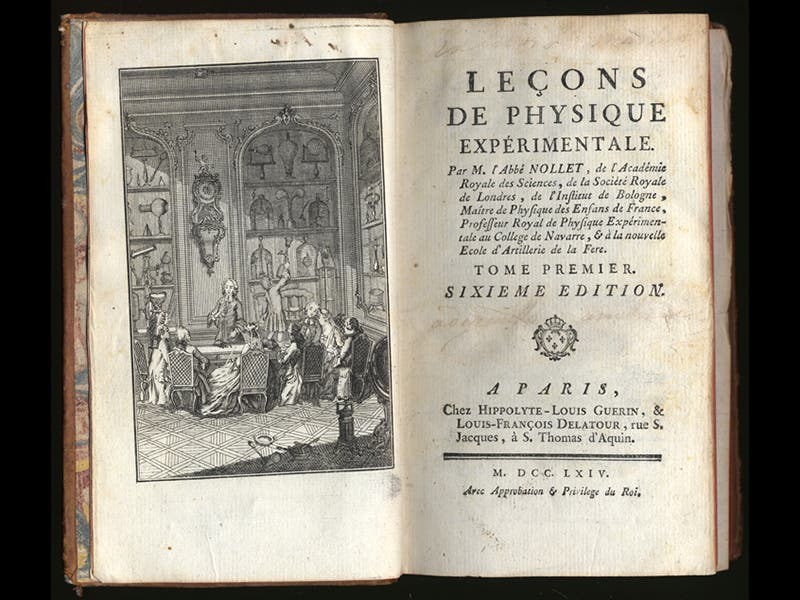
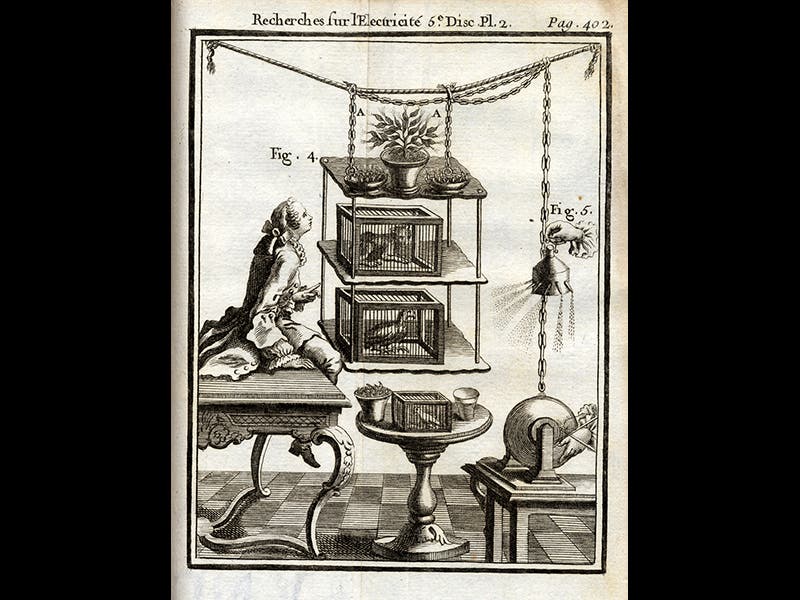
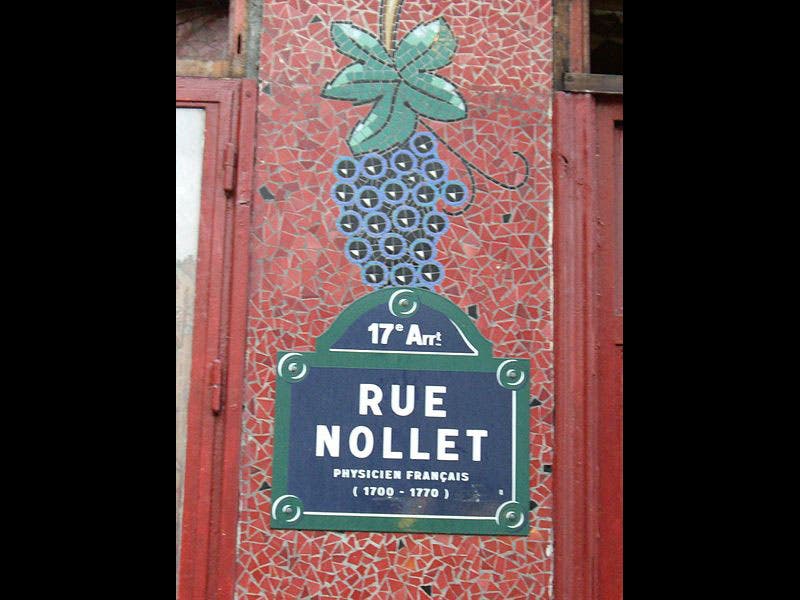
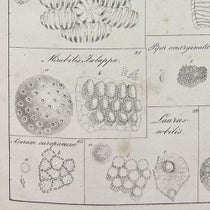
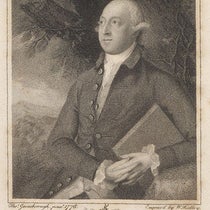
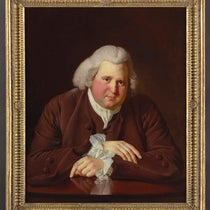
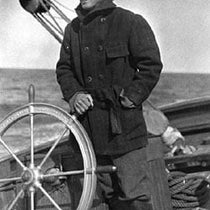
![Using an astrolabe to measure the depth of a well, woodcut in Elucidatio fabricae vsusq[ue] astrolabii, by Johannes Stöffler, 1513 (Linda Hall Library)](https://assets-us-01.kc-usercontent.com:443/9dd25524-761a-000d-d79f-86a5086d4774/a998eb50-55d2-4a88-ace2-a50aa5fa86e7/Stoffler%201.jpg?w=210&h=210&auto=format&fit=crop)